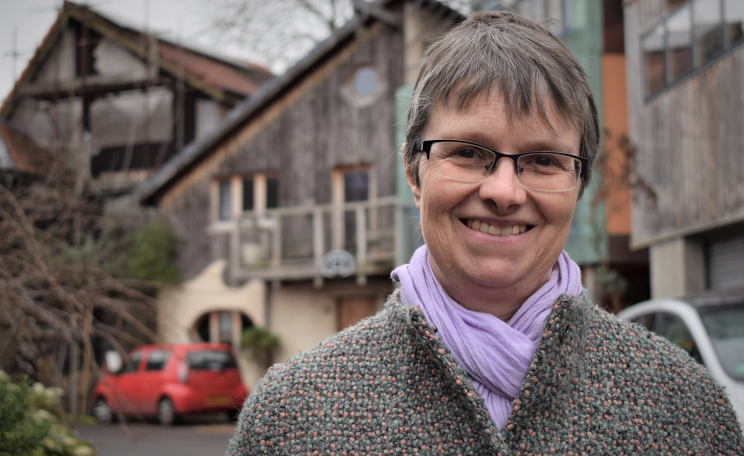Of the many characters whose genius Jackson shares, the complex work of the German philosopher Hannah Arendt, has perhaps the most to offer our troubled times.
The multiple crises impacting the global community are leading people to ask questions about their causes - and finding those causes in the lethal design of the economic system. Indeed, I’ve reviewed three books about imagining the economy without growth.
It was this conclusion about capitalism that led me to go back to university to study economics three decades ago and so I’m greatly encouraged by this development.
Of the three books Post Growth by Tim Jackson is easily the best. Written almost as much in poetry as in prose, it is offered as a string of vignettes and parables giving us insights into what’s wrong with the way our economy works and what we can do to change it.
Ecological
We are offered a fascinating cast of characters that include the 1960s US science power-couple Carl Sagan and Lynn Margulis, Hannah Arendt, Wangari Maathi, John Stuart Mill and his wife Harriet and, as they say, many, many more.
Jackson illustrates the power of stories by describing how the ‘law of the jungle’ became the defining myth of globalized capitalism when 19th-century economists projected their own selfish and competitive motivations onto an innocent natural world.
He quotes the historian Theodore Roszak: "Far from reading the ethos of the jungle into civilized society, Darwin read the ethos of industrial capitalism into the jungle, concluding that all life had to be what it had become in the early mill towns: a vicious 'struggle for existence'."
Where Darwin led, economists followed, and Darwin himself admitted being guided to his insights into evolution by that most dismal of all economists, Thomas Malthus.
Far from the war-zone imagined by 19th-century philosophers, an unbiased observation of nature displays the cooperative and symbiotic relationships between species as described by ecologists and sought after by ecological economists.
Powerful
Of the many characters whose genius Jackson shares, the complex work of the German philosopher Hannah Arendt, has perhaps the most to offer our troubled times.
Jackson’s summary of the wisdom she has to offer on why work is so essential to happiness and how it’s mutant form within a capitalist economy is a root cause of our distress is a vital insight, is balanced by her equally precious understanding of how our fear of death has been warped by the consumer-advertising nexus into an endless but ultimately unsatisfying quest for novelty and excess.
Jackson illustrates that raising questions about the motivation and consequences of the economy is not a new pursuit.
Since the dawn of capitalism, industrial organisation and labour exploitation have caused devastation of our environment and our lives.
While the powerful continued to profit, the people who suffered have not been always sufficiently informed or organized to resist.
Of the many characters whose genius Jackson shares, the complex work of the German philosopher Hannah Arendt, has perhaps the most to offer our troubled times.
Well-being
The blocks to a rational transformation of our economy so that it maximizes happiness without destroying our life-support systems are and always have been political.
Jackson describes a meeting at the Treasury not long after the publication of his book Prosperity without Growth: "I laid out the arguments as carefully as I could. The limits to decoupling. The paradox of happiness. The foundations for an economy of care and creativity.
"The special advisor gave every appearance of listening carefully. At the end, he solemnly asked me just one question. What would it be like for Treasury officials to turn up at G7 meetings knowing that the UK’s GDP had slipped down the world rankings?"
Fortunately, not all countries are as obsessed with size over substance. New Zealand is now measuring its economic success in terms of well-being.
And a Well-Being Bill sponsored by Lord Bird heads the list of private members bill in the House of Lords. Knowledge is spreading and the economic system held in place by those who control money and power is being challenged.
Pipework
This book feels more like philosophy than economics and I hope for that reason it will find a wide audience amongst those who would not consider reading a book in my own field of study. But there is also a limitation here.
It is essential to build understanding that the economy is designed to be destructive and that we must seek solutions to the climate and ecological crises there but we also need to invest in understanding the complex nuts and bolts that will be required to do the necessary re-plumbing.
As French economist Esther Duflo argues, economists are like plumbers in that they need not only to tinker with systems that are not working, but need to design and install improved and updated systems.
So if you read this book and are inspired by its elegant arguments for change - and especially if you’re close to the beginning of your working life - could I recommend that you commit to a technical understanding of finance, trade, exchange rates, and so on?
Because the world urgently needs more economists who understand the pipework as well as having a vision of a sustainable future.
This Author
Molly Scott Cato is formerly the Green MEP for South West England and Gibraltar and is a professor of economics.







